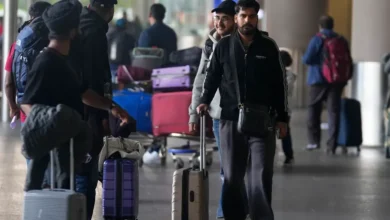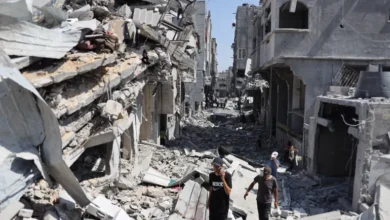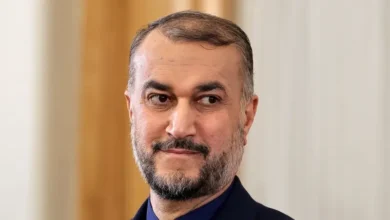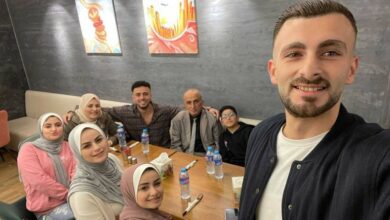Respiratory illness on the rise as power cuts, heatwave disrupt lives of sick Gazans
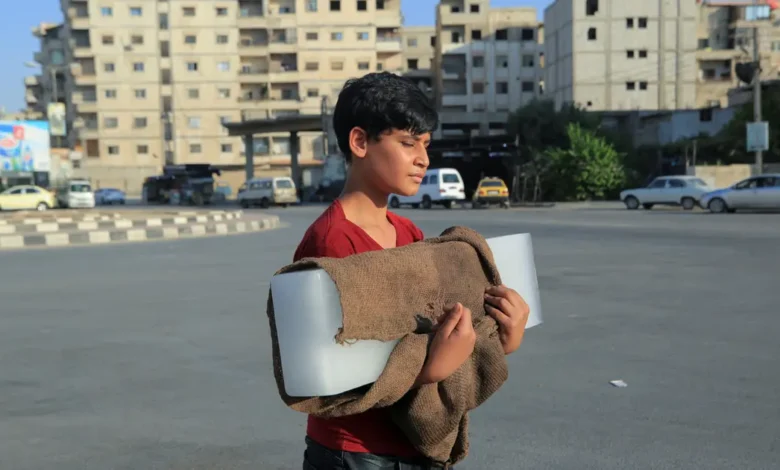
A heatwave and worsening power cuts in Gaza have left some of those living in the overcrowded Palestinian enclave struggling to breathe.
Ismail Nashwan, who suffers from pulmonary fibrosis, has had to shuttle between his home and hospital since temperatures rose over 38 degrees Celsius (104 Fahrenheit), because he could not run his ventilator, or even just a fan, at home.
“I go to the hospital, and when I come back home the electricity goes off again so I go back into the hospital,” Nashwan, 65, said through an oxygen mask, with dozens of bags of medicines on a table next to breathing equipment in his room.
“This is how my life has become.”
More than 2.3 million people live in a narrow strip of land squeezed between Egypt and Israel. Power cuts, which are unpredictable at the best of times, now last for around 12 hours a day instead of 10 as demand for air conditioning soars.
The extremist group Hamas, which has run the territory since 2007, blames a 16-year-long Israeli blockade – backed up by neighboring Egypt — for devastating Gaza’s economy. Israel says its blockade is necessary to stop arms reaching Hamas.
Doctor Mohammad Al-Haj of Gaza’s Shuhada Al-Aqsa Hospital said the extreme heat and power interruptions means they have had to treat more people with respiratory problems this July and August — typically the hottest time of year.
“Power cuts deprive patients of their right to regular oxygen ventilation and that pushes patients to keep visiting hospital,” Haj said.
Alongside cases of acquired pulmonary fibrosis, Gaza health officials say more than 300 people in the enclave were born with cystic fibrosis, which causes the lungs and digestive system to become clogged with sticky mucus.
Abdel-Majeed Al-Sbakhi, who has diabetes as well as cystic fibrosis, was among those forced in hospital by the heat.
“I can’t stand the heat at home, it causes more chest inflammation and sends my heart rate up, so I spend most of my time in the hospital,” he said.


